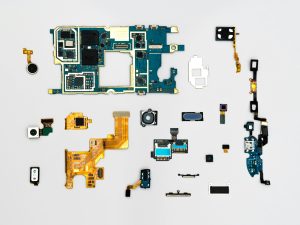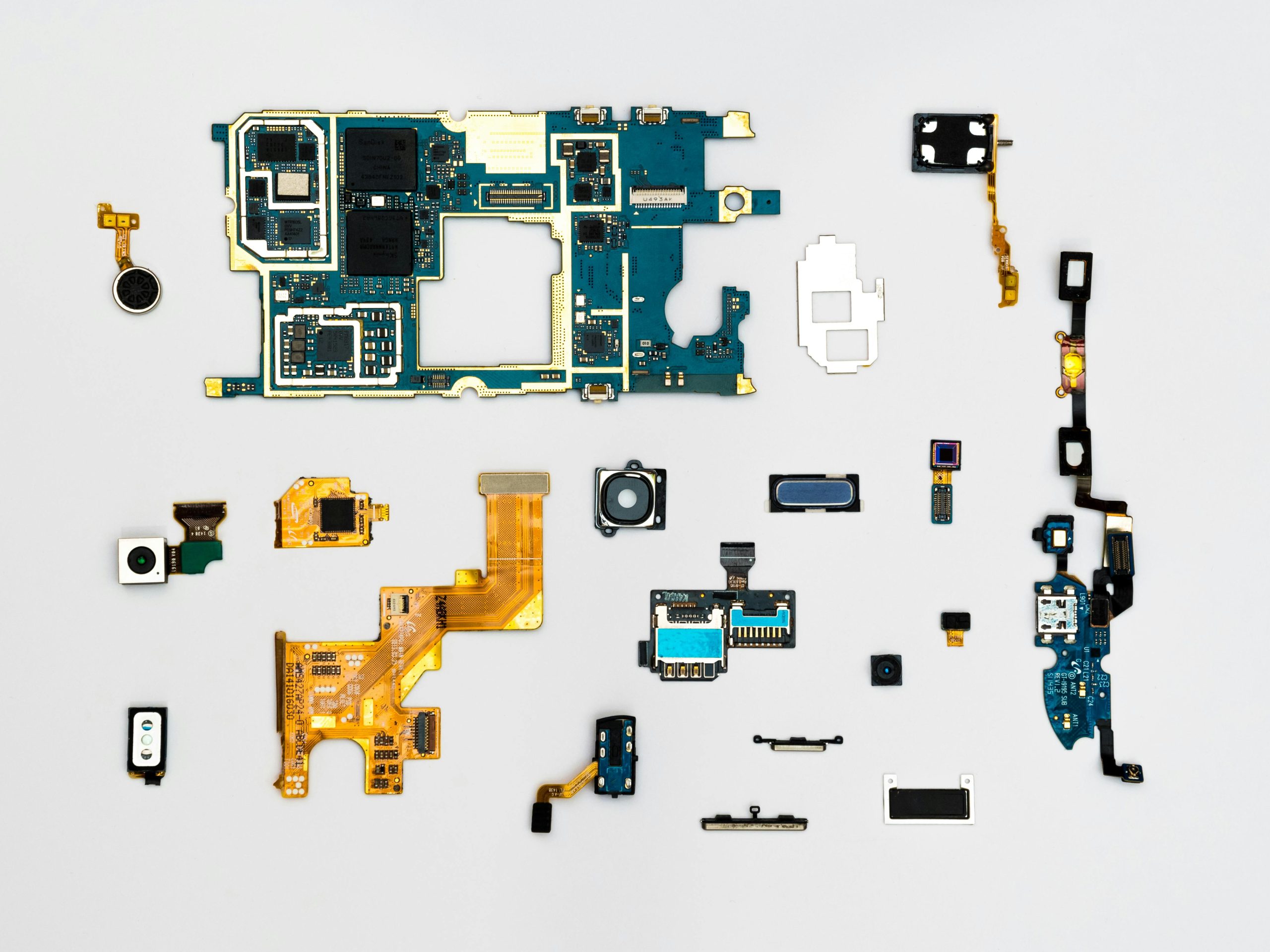The Importance of Digital Technology in the Modern World
In the 21st century, digital technology is the invisible force transforming how we live, work, learn, and connect. From smartphones to artificial intelligence, from online banking to virtual education — digital technology has become the foundation of our daily lives. It drives progress, enhances convenience, and opens up possibilities we couldn’t have imagined just a few decades ago.
This article explores the importance of digital technology, highlighting its role in various sectors including business, education, healthcare, communication, and personal life.

What Is Digital Technology?
Digital technology refers to systems and tools that use computers, software, and the internet to store, process, and transmit information. It includes everything from smartphones, laptops, and tablets to more complex systems like cloud computing, blockchain, artificial intelligence (AI), and the Internet of Things (IoT).
These technologies are not just gadgets — they’re enablers of innovation, efficiency, and global connectivity.
1. Revolutionizing Business and the Global Economy
Digital technology has redefined business operations across all industries.
Key Impacts:
-
Automation: Repetitive tasks can now be handled by software, reducing costs and increasing accuracy.
-
E-commerce: Platforms like Amazon, Shopify, and Etsy allow businesses to sell products globally.
-
Data-Driven Decisions: Businesses use analytics to understand customer behavior and improve products or services.
-
Remote Work Tools: Apps like Zoom, Slack, and Microsoft Teams have made it possible for global teams to work seamlessly.
Result: Companies that embrace digital transformation outperform competitors, increase profits, and scale faster.
2. Transforming Education and Learning
The rise of digital education tools has changed how we acquire knowledge. Whether it’s a child using a tablet for homework or a professional taking online courses, learning has become more accessible than ever.
Benefits of Digital Learning:
-
Remote Access: Students can learn from anywhere using online platforms like Khan Academy, Coursera, or Udemy.
-
Interactive Content: Videos, simulations, and quizzes enhance understanding and retention.
-
Personalized Learning: AI-powered systems can tailor lessons based on a learner’s pace and style.
-
Collaboration: Tools like Google Classroom and Microsoft Teams encourage group projects and real-time discussions.
Outcome: Education is now more inclusive, affordable, and flexible thanks to digital technology.
3. Advancing Healthcare and Saving Lives
Digital technology has revolutionized the healthcare industry, making it faster, smarter, and more patient-focused.
Major Advancements:
-
Electronic Health Records (EHRs): Improve data accuracy and reduce paperwork.
-
Telemedicine: Patients consult doctors via video calls, especially helpful in remote areas.
-
Wearable Devices: Track heart rate, sleep patterns, and physical activity in real time.
-
AI in Diagnosis: Algorithms can detect diseases like cancer earlier and more accurately.
Impact: Digital tools help save lives, reduce hospital visits, and empower people to manage their health proactively.
4. Enhancing Communication and Connectivity
Gone are the days when long-distance communication took weeks. With digital technology, we’re all connected in real time, no matter where we are.
Communication Tools:
-
Instant Messaging: Apps like WhatsApp, Messenger, and Telegram offer real-time chats.
-
Video Conferencing: Zoom, Google Meet, and Skype bridge geographical gaps.
-
Social Media: Platforms like Facebook, Instagram, and LinkedIn allow people to share, network, and influence.
Result: Digital communication fosters global collaboration, strengthens personal relationships, and builds communities.
5. Empowering Innovation and Creativity
Digital tools have made it easier than ever to create, innovate, and share ideas. From startups to artists, anyone can launch a product, write a book, or share music using digital platforms.
Examples:
-
Graphic Design Software: Tools like Canva and Adobe Photoshop democratize creativity.
-
App Development: Platforms like Flutter and React Native help build applications without a full tech team.
-
Content Creation: YouTube, TikTok, and blogging tools empower creators to reach millions.
-
Crowdfunding Platforms: Kickstarter and GoFundMe allow entrepreneurs to raise funds directly from supporters.
Conclusion: Technology turns ideas into impact, enabling more people to become creators, not just consumers.
6. Supporting Environmental Sustainability
Digital technology also plays a role in monitoring and protecting the environment.
How It Helps:
-
Smart Energy Management: IoT devices control lighting, heating, and appliances for better energy efficiency.
-
Remote Sensing & Drones: Help in wildlife tracking, deforestation detection, and agriculture monitoring.
-
Data Analysis: Big data is used to predict climate patterns, track emissions, and develop green policies.
Bonus: Paperless offices, virtual meetings, and cloud storage reduce our reliance on physical resources.
7. Improving Daily Life and Convenience
From ordering groceries online to using Google Maps, digital technology makes daily life more convenient, efficient, and enjoyable.
Everyday Applications:
-
Online Banking: Manage finances, pay bills, and transfer money from your smartphone.
-
Smart Homes: Use voice assistants (Alexa, Google Home) to control lights, music, and appliances.
-
Digital Assistants: Set reminders, send messages, or search the web instantly.
-
Online Shopping & Delivery: Shop for anything, anytime, and have it delivered to your doorstep.
Effect: Technology saves time, reduces effort, and gives people more control over their lives.
8. Bridging Social and Economic Gaps
Digital technology has the potential to level the playing field, offering opportunities to people regardless of location, income, or background.
Inclusion Through Technology:
-
Online Jobs: Freelancing, remote work, and gig platforms offer income opportunities worldwide.
-
Free Educational Content: People from underprivileged backgrounds can access world-class knowledge.
-
Digital Government Services: Citizens can access public services like tax filing, voter registration, and health care online.
-
Mobile Banking: Helps unbanked populations save money and access credit.
Significance: Digital inclusion can reduce inequality and improve quality of life for millions.

Challenges and Ethical Considerations
While digital technology offers countless benefits, it also comes with challenges that need careful management.
Key Concerns:
-
Cybersecurity Threats: Data breaches, identity theft, and hacking are on the rise.
-
Digital Addiction: Excessive screen time can harm mental health.
-
Job Displacement: Automation may replace some traditional jobs.
-
Privacy Issues: Personal data is often collected and used without full transparency.
Solution: The responsible use of technology, along with digital literacy and strong legal frameworks, is essential to maximize its benefits and minimize harm.
Conclusion
The importance of digital technology cannot be overstated. It powers economies, educates the world, enhances healthcare, and brings people closer. It also encourages innovation, sustainability, and empowerment on a global scale.




